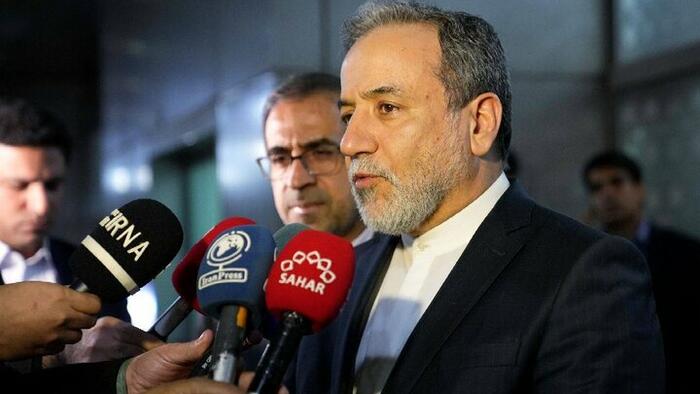


Iran says it is still assessing damage at its nuclear sites which were hit during the 12-day war with Israel, and which were bombed in a special Trump-ordered B-2 raid last weekend; however, Tehran has made clear it has no intention to host UN International Atomic Energy Agency (IAEA) chief Raphael Grossi and his team for inspections.
Iran's Foreign Minister Abbas Araghchi has acknowledged that the damage was "serious" and that "a detailed assessment of the damage is being carried out by experts from the Atomic Energy Organization [of Iran]."
He said further in the Thursday state TV interview, "Now, the discussion of demanding damages [from the US and Israel] and the necessity of providing them has been placed as one of the important issues on the country’s diplomatic agenda."
However, he clarified that an Iranian negotiating team has no plan to meet with the United States, after President Trump earlier proclaimed that Washington planned to have talks with Iran next week.
He said that leaders are still assessing whether talks with the US would be in Iran's interest, after previously saying that the Islamic Republic doesn't engage in negotiations under duress.
Araghchi’s remarks followed the passage of a "binding" bill by Iranian lawmakers to halt all collaboration with the UN nuclear watchdog IAEA.
As for the rejection of talks with the US next week, it flatly contradicts Trump's words during a NATO summit presser at The Hague. "We're going to talk to them next week, with Iran," the president had told reporters.
"I don't care if I have an agreement or not," he said. "The only thing we'd be asking for is what we were asking for before about, 'we want no nuclear.' But we destroyed the nuclear. In other words, that's destroyed. I said, 'Iran will not have nuclear.' Well, we blew it up. It's blown up to kingdom come. And so I don't feel very strongly about it. If we got a document, it wouldn't be bad."
He strongly suggested a deal is no longer needed after all, given the assertion that core nuclear components have been 'destroyed' and 'obliterated'. Later the White House Press Secretary confirmed that there is as yet no meeting with the Iranians scheduled.
Meanwhile, the IAEA's Grossi has expressed doubts: "There is a chance that much of Iran's highly enriched uranium survived Israeli and U.S. attacks because it may have been moved by Tehran soon after the first strikes, U.N. nuclear watchdog chief Rafael Grossi said on Wednesday," according to Reuters.
A Financial Times article, based on early European intelligence assessments and voiced by EU officials, has concluded something similar. "Preliminary intelligence assessments provided to European governments indicate that Iran’s highly enriched uranium stockpile remains largely intact following US strikes on its main nuclear sites, two officials have said," the FT wrote Thursday.
